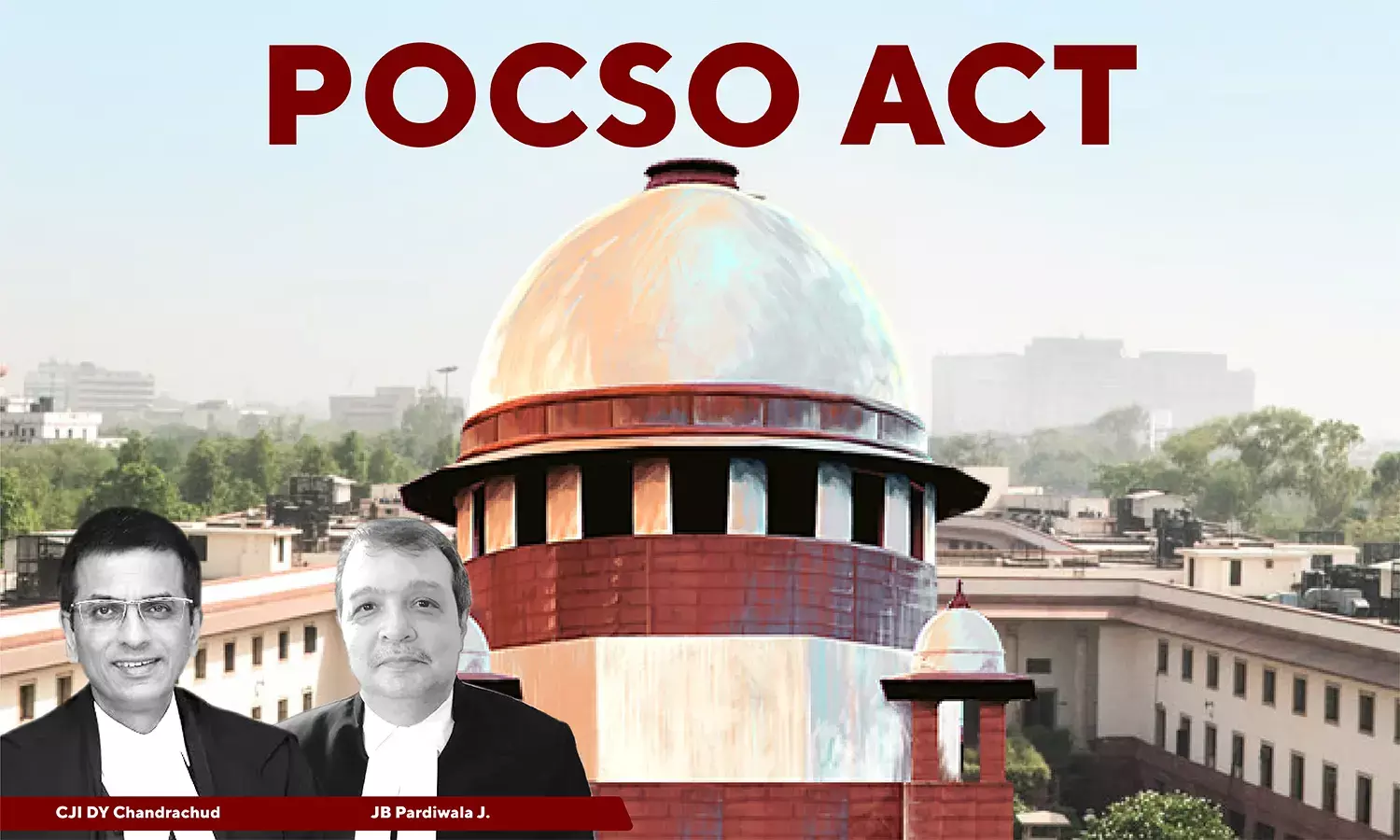Presumption Of Culpable Mental State U/S.30 POCSO Act Can Be Applied In A Quashing Proceeding: Supreme Court
In its landmark ruling today, the Supreme Court clarified that the statutory presumption under Section 30 of the Protection of Children from Sexual Offences (POCSO) Act can be made applicable by High Courts while exercising their inherent powers to quash criminal proceedings under Section 482 of the Criminal Procedure Code (CrPC), or the corresponding provision of the Bhartiya Nagrik Suraksha Sanhita, 2023 (BNSS).
The Bench of Chief Justice DY Chandrachud and Justice JB Pardiwala observed: "The statutory presumption of culpable mental under Section 30 of POCSO can be made applicable in a quashing proceeding pertaining to any offence under the POCSO."
Drawing upon earlier rulings, the Court emphasized that the statutory presumption must be respected during all stages of legal proceedings unless the allegations are so patently false or frivolous that no case can be made out even on a prima facie basis. It further underscored that determining the existence or absence of a culpable mental state requires evaluation of evidence, which should typically be left for the trial court to assess.
In arriving at its conclusion, the Court referred to several significant judgments. In State of M.P. v. Harsh Gupta (1998), the Supreme Court had already established that statutory presumptions, such as the one contained in Section 69 of the Indian Forest Act, must be taken into account during quashing proceedings. It noted that High Courts should not venture into detailed factual inquiries at the quashing stage, as such inquiries are reserved for trial. The Court also drew upon the decision in Prakash Nath Khanna v. CIT (2004), which dealt with statutory presumptions under the Income Tax Act. The judgment reinforced that the High Courts should not evaluate the defense regarding mental culpability during quashing proceedings. Instead, these defenses should be raised and examined during the trial.
The Court expressed its concern that prematurely quashing a case at the pre-trial stage, without considering the statutory presumption, could deprive the prosecution of its right to present evidence in court. This could allow accused individuals to evade trial altogether, undermining the objectives of the POCSO Act and weakening the criminal justice system.
The Court emphasized that the statutory presumption of culpable mental state under Section 30 of the POCSO Act is linked to the offence itself and not to the stage of proceedings. As such, it is applicable in any proceeding, including quashing petitions, and should not be limited solely to trial proceedings before a Special Court. It warned that failing to consider the presumption in quashing petitions could give undue advantage to the accused by allowing them to bypass trial and undermine the legislative intent behind the POCSO Act.
"It is imperative for the courts to discourage any such attempts on part of the accused to short circuit the statutory provisions and procedure laid in a particular Act and evade trial entirely. In such situations, the statutory presumption becomes all the more important to effectively ensure that the criminal process is not manipulated by any devious accused," the Bench said.
Cause Title: Justice Rights for Children Alliance and Anr. v. S. Harish & Ors.
Click here to read/download the Judgment












